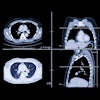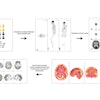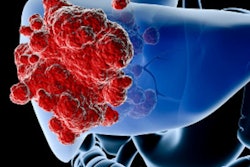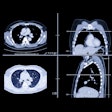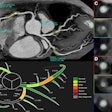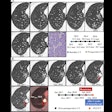Monday, November 29 | 9:30 a.m.-10:30 a.m. | SSGI06-5 | Room TBA
A deep learning-based software application can improve the objectivity of treatment response evaluation in patients with hepatocellular carcinoma (HCC), according to this presentation.Researchers led by presenter Matt Kelly, PhD, of artificial intelligence (AI) firm Perspectum developed a 3D convolutional neural network (CNN) in an effort aimed at improving on the intrareader and interreader variability often experienced when radiologists utilize the modified Response Evaluation Criteria in Solid Tumors (mRECIST) criteria to assess HCC treatment response.
Using dual-phase contrast-enhanced abdominal CT exams from a multicenter drug trial, the researchers trained the CNN to automatically segment both the liver and lesions, as well as to estimate diameter. In testing, the algorithm's automatically generated lesion segmentation masks showed high agreement with manually drawn 3D masks. In addition, the model's automatic diameter measurements were deemed to be in close agreement with the interpretation of a central radiologist in 81.8% of the cases.
"This deep-learning based lesion detection and diameter measurement tool can support radiologists by minimizing subjectivity in mRECIST measurements and reducing time per analysis," the authors wrote. "This has the potential to improve both routine care and clinical trial workflow."
Want to learn more? You may want to sit in on this Monday session.


